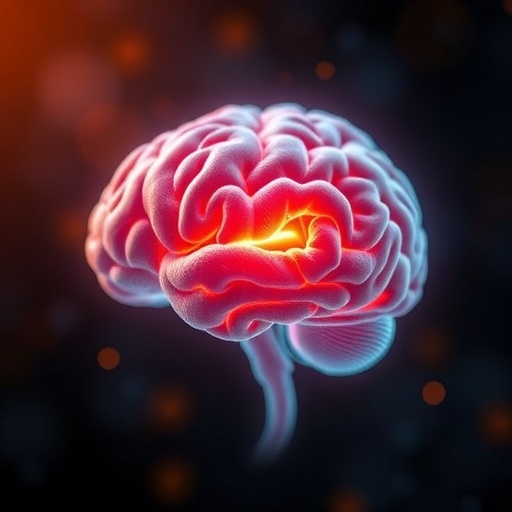Emerging research from the University of Missouri is shedding new light on the potential for dietary intervention to preserve brain function and stave off cognitive decline, particularly in individuals genetically predisposed to Alzheimer’s disease. Central to this groundbreaking investigation is the ketogenic diet—a specifically high-fat, low-carbohydrate nutritional regimen—that appears to modulate brain energy metabolism and gut microbiota uniquely, depending on genetic factors and sex. This research is taking place within the innovative environment of the Roy Blunt NextGen Precision Health building, which integrates advanced imaging capabilities with robust interdisciplinary collaboration to expedite translation from animal models to human studies.
Alzheimer’s disease continues to challenge scientists and clinicians due to its complex pathophysiology and multifactorial etiology. A prominent genetic risk factor in late-onset Alzheimer’s is the apolipoprotein E4 gene variant, or APOE4, which impairs glucose metabolism within the brain. In typical brain physiology, glucose serves as the primary energy substrate, metabolized to support synaptic function, neuronal maintenance, and plasticity. However, for those who harbor the APOE4 allele, especially females, glucose conversion efficiency declines markedly, predisposing these individuals to progressive neurodegeneration and cognitive deficits.
The recent experimental findings highlight a ketogenic diet’s capacity to circumvent this metabolic bottleneck by shifting cerebral energy metabolism towards ketone bodies. Ketones, derived from fat breakdown, provide an alternative and efficient fuel source for neurons, potentially preserving synaptic integrity despite impaired glucose uptake. This metabolic rerouting not only sustains brain energy but appears to confer neuroprotective benefits by maintaining cellular homeostasis and reducing oxidative stress — factors critically involved in Alzheimer’s pathogenesis.
Uniquely, the study’s focus on sex-specific responses reveals that female mice carrying the APOE4 gene exhibit more pronounced benefits when fed a ketogenic diet compared to males. These benefits include improved gut microbiota profiles and enhanced cerebral energy metrics, indicating a sophisticated interaction between genetic makeup, sex, and diet in regulating brain health. The gut-brain axis, increasingly recognized as central to neurological conditions, is influenced by dietary components modulating microbial communities that in turn affect neurochemical signaling and metabolic substrates available to the brain.
The experimental methodology employed involves rigorous metabolic phenotyping and cutting-edge neuroimaging technology housed within the University of Missouri’s NextGen Precision Health building. This facility enables scientists like Professor Ai-Ling Lin and doctoral candidate Kira Ivanich to deploy high-resolution brain imaging alongside microbiome analysis, providing a comprehensive perspective on how nutritional interventions can be tailored to individual genotypes and sex-specific physiological responses. These tools facilitate real-time insights into brain metabolism alterations induced by dietary changes, a critical step towards precision nutrition therapies.
Precision nutrition represents a paradigm shift in medical science, moving away from generalized dietary guidelines toward personalized strategies considering genetic predisposition, microbiome composition, sex, and age. This approach acknowledges the heterogeneity in metabolic and neurological responses among individuals. Since Alzheimer’s symptoms generally manifest later in life, early preventative measures adapted to at-risk populations, such as those carrying APOE4, could delay or arrest disease progression.
Dr. Lin emphasizes the significance of early interventions, underscoring that protecting brain health well before clinical symptoms emerge is essential. The coalition of expertise within Mizzou’s research ecosystem, which integrates biomedical engineering, clinical medicine, epidemiology, and neurochemical analysis, fosters an environment for rapid innovation that accelerates the movement from animal research to human clinical trials. This integrated team science approach enriches data quality and enhances translational potential.
The ketogenic diet’s modulation of the gut microbiota-brain metabolite axis in a genotype- and sex-specific manner offers a compelling avenue for therapeutic development. Understanding how gut microorganisms metabolize dietary lipids and produce neuroactive metabolites provides a novel target for intervention. Such discoveries pave the way for microbiota-based therapeutics or adjuncts to dietary regimens optimized for individuals’ unique genetic profiles.
These findings have profound implications beyond Alzheimer’s disease, extending to other neurodegenerative and psychiatric conditions where metabolic dysregulation and gut microbiota imbalances play contributory roles. The study underscores the necessity of multifaceted research strategies that integrate metabolic profiling, genetic analysis, and neuroimaging to unravel the complexities of brain health maintenance.
For researchers like Kira Ivanich, the impact of this work is deeply personal. Motivated by her grandmother’s battle with Alzheimer’s, she is committed to advancing interventions that preserve cognitive function and improve quality of life. The University of Missouri’s community and resources provide a nurturing space where promising ideas become actionable research, driving hope for early, effective strategies against neurodegeneration.
As this line of research advances, the promise of ketogenic diets and precision nutrition could reshape clinical guidelines and public health recommendations. By leveraging genetic insights and metabolic tools, personalized dietary protocols might one day become standard care for populations vulnerable to cognitive decline, transforming the landscape of neurodegenerative disease prevention and treatment.
The study, titled “Ketogenic Diet Modulates Gut Microbiota–Brain Metabolite Axis in a Sex- and Genotype-Specific Manner in APOE4 Mice,” appears in the Journal of Neurochemistry, reflecting a significant contribution to the field of neurochemical research and precision medicine. This work exemplifies how nutritional neuroscience is evolving into a sophisticated, personalized discipline that holds potential to revolutionize our understanding of brain health.
Subject of Research: Animals
Article Title: Ketogenic Diet Modulates Gut Microbiota–Brain Metabolite Axis in a Sex- and Genotype-Specific Manner in APOE4 Mice
News Publication Date: Not available (Article Publication Date: 1-Sep-2025)
Web References: http://dx.doi.org/10.1111/jnc.70216
References:
Lin, A.-L., Ivanich, K., et al. (2025). Ketogenic Diet Modulates Gut Microbiota–Brain Metabolite Axis in a Sex- and Genotype-Specific Manner in APOE4 Mice. Journal of Neurochemistry. DOI: 10.1111/jnc.70216
Image Credits: University of Missouri




